
Special Need S Re S ou R ce Guide New Yo R k
www.newyorkfamily.com
Is your child struggling with: School? Attention? Socializing? Tantrums?
The clinical team at CTM can help.
•Learning Disabilities
•ADHD
•Autism
•Developmental Delays
AREAS OF SPECIALTY
•Anxiety, Depression, behavioral issues
•Families in court over custody, education or legal reasons
• Extra time on tests, both in classrooms, SATS, ACTS, SHSATS
Help with:
• IEPs, 504 plans, private school placement
• Forensic (injury, special education, child custody, immigration) cases
• Medication management


Dr. Sanam Hafeez, a renowned and widely sought expert in the field of mental health and neuropsychology, leads the clinical team at CTM. Our doctors are trained to help not only the child but their ecosystem in supporting their needs. Well-being, emotional and academic, goes hand in hand, and we can guide you to both. Please call or visit our website to learn more.
We accept most commercial insurances* credit cards, cash, Venmo
* GHI, Cigna, 1199, Aetna, United Healthcare, BCBS/Anthem, Magnacare





114-20 Queens Blvd, Suite CS2 Forest Hills, NY 11375• 718-441-0166
NYC’s only K-12+ independent inclusion school is now in the Financial District at 5 Hanover Square
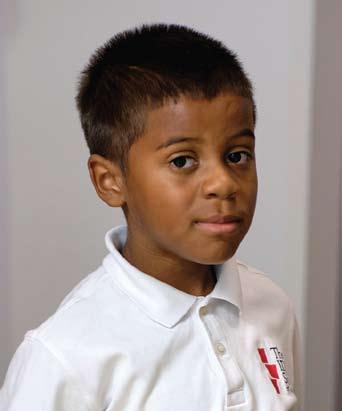

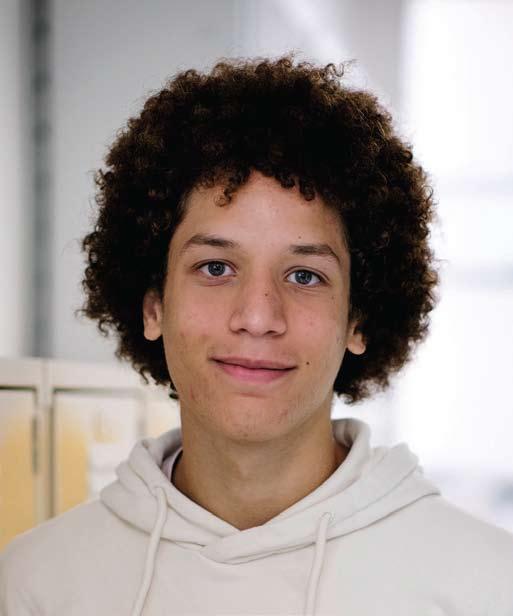
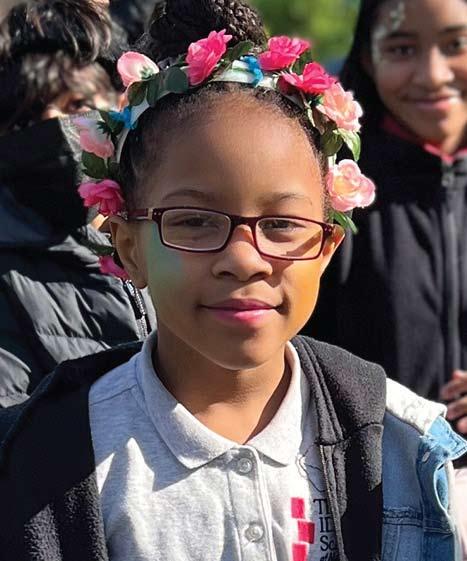
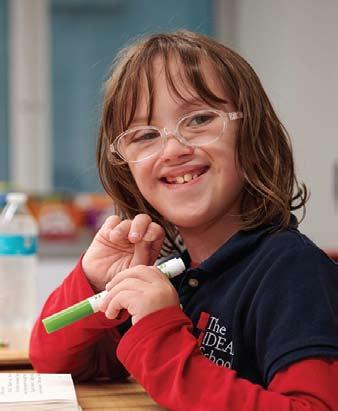
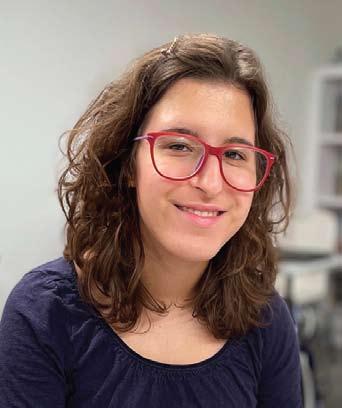
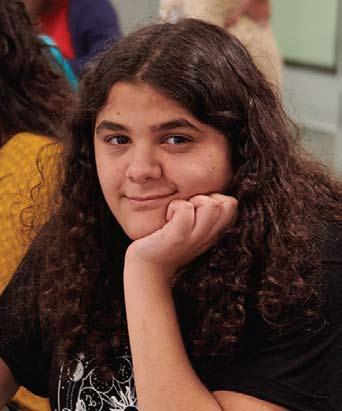
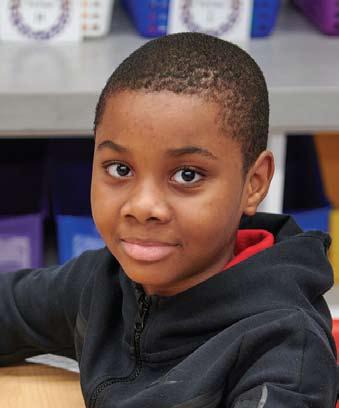
At IDEAL, we believe that differentiated learning is the key to academic excellence. We offer a supportive environment where all children are valued and celebrated.
www.theidealschool.org/open-houses
Join us for an open house or a personal tour to learn about our unique inclusion mission.
Call 212-769-1699 x10105 or email admissions@theidealschool.org for more information.
April Virtual Open Houses
All from 12-1 PM
4/5 Lower School (Grades K-5)
4/9 Next Steps (Postsecondary)
4/19 Upper School (Grades 6-12)
Contact us to learn about our new home and the IDEAL Scholarships available to new students entering Grades K-8.
April 2024 | The Special Child 3

Publisher: Clifford Luster
e ditorial d irector:
Donna Duarte-Ladd
a ssociate Publisher: Erin Brof
advertising d irector:
Stacie Goldberg
dePuty editor: Jeannine Cintron
digital editor: Kaitlyn Riggio
e vents Manager: Shara Levine
e ditorial a ssistant: Shara Levine
Partnershi P Managers:
Lauren Alperin, Lauren Anchin, Joan Bergman, Mary Cassidy, Suzanne Cirigliano, Chris Cunnington, Lori Falco, Shelli Goldberg-Peck, LynnMarie Hanley, Lisa Herlihy, Nicole Miller, Janine Mulé, Nina Spiegelman, Gwen Tomaselli
Marketing & s trategy d irector:
Rosalia Bobé
Marketing & e vents a ssistant:
Ashley Rivera
sales & Marketing assistant:
Elana Cantor
Marketing a ssistant: Tilejah Gilead
Media sales a ssistant:
Anastasia Aktipis
art d irector: Leah Mitch
Web d evelo P er: Sylvan Migdal
g raP hic d esigners:
Arthur Arutyunov, Connie Sulsenti
e ditors at large:
Serena Norr, Cris Pearlstein
e ditorial contributors:
Jana Beauchamp, Mia Salas
e ditorial intern: Avital Kessner
coNtact iNfoRmatioN
advertising : (718) 260-4554
Advertising@NewYorkFamily.com
6 | s pecial child g lossary
Part of navigating a special needs or disability diagnosis is knowing the words used to describe it. Check out our helpful glossary
10 | autism
Many parents have that ‘a-ha’ moment when they realize their child may have a more profound challenge than previously expectant. Here are steps to take if you think your child is on the spectrum
12 | dyslexia
Early signs of dyslexia and
intervention practices may vary from person to person. We sat down with an expert for helpful tips
16 | adhd
ADHD in Children (symptoms, causes and non-medication treatment)
18 | s pecial n eeds listings
Helpful resources for the special need parent
20 | s pecial n eeds community
The leaders and schools that support the Special Needs families
circulation: (718) 260-8336
Tina@NewYorkFamily.com
President: Victoria Schneps-Yunis
ceo : Joshua Schneps
coo : Clifford Luster
4 NewYorkFamily.com | April 2024
get in touch
Share your feedback and ideas about family life in New York! Email us at editorial@newyorkfamily.com and tag us at #newyorkfamily
address: New York Family Media/Schneps Media 1 MetroTech Center North, Third Floor Brooklyn, NY 11201
New York Family has
awarded the PMA Gold Award for for Overall Design and Bronze for Website General Excellence. New York Family is published monthly by Queens Family Media, LLC. Reproduction of New York Family Media in whole or part without written permission from the publisher is prohibited. All rights reserved. ©2024 Queens Family Media, LLC 2023 E F X S O ? ? Y I ? contents
been
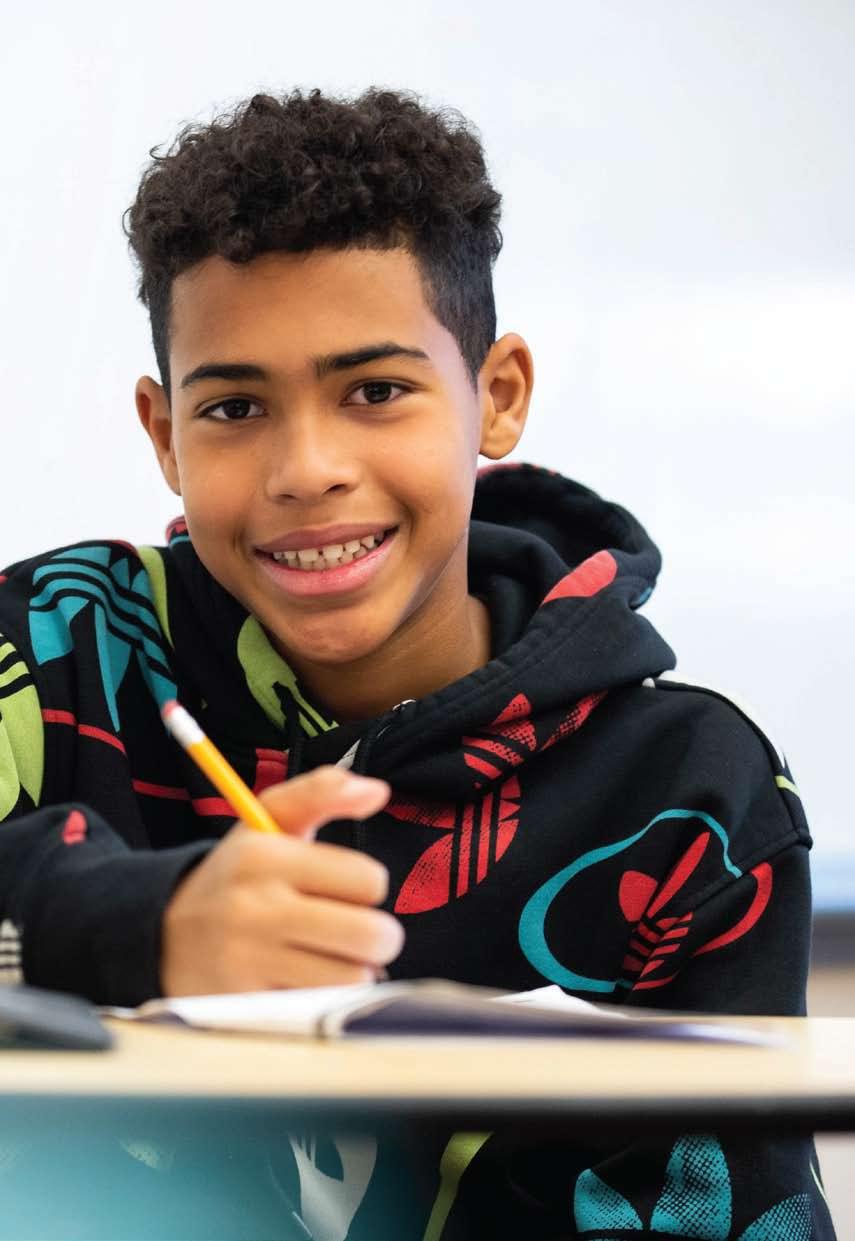
Since 1992
Are you looking for an authentic school experience that allows your child to enjoy their formative years in a safe, supportive environment?
Gillen Brewer is now accepting applications for the 2024-2025 school year including for Middle School, opening this fall!
Register for our next virtual info session
Tuesday April 19th at 9:00 a.m. or an in-person tour to learn more!

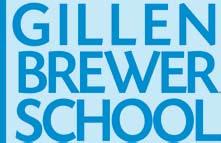
April 2024 | The Special Child 5
Admissions Today!
admissions@gillenbrewer.com
212-831-3667 (x207)
gillenbrewer.com/admissions
The Gillen Brewer School The Gillen Brewer School expands possibilities for PreK - 8th Grade students with a broad range of language-based learning disabilities. Contact
Email:
Phone:
Website:
Instagram: @gillenbrewer
theTogether,WeSee Possibilities.
more at winstonprep.edu
the QR code to visit our NY Campus
New York Campus Learn
Scan
here Learning is Transformative Overall Faculty to Student Ratio Average Number of Students in Each Class 3 0 Average Time Spent in 1:1 Focus Program Each Week 3 5 hours over 99 Percentage of Winston Prep students graduating high school
Our research-based model results in extraordinary transformations for students with learning disabilities.

>SPECiAL CHiLD
Glo SS a RY
Terms that families with children with disabilities should know
By mia Sala S
Part of navigating a special needs or disability diagnosis (Developmental disability: Physical, learning, language, or behavioral impairments that will delay
your child’s development. ADHD, Autism, learning disabilities, etc. are all examples of developmental disabilities) is knowing the words used to describe it.
But it can be intimidating to ask what everything means, especially when doctors
or websites seem to be speaking another language with acronyms like “ERSS” and “OT”. We’ve all been in that confusing place before and, as parents, it’s not a fun feeling.
That’s why, we’ve created a glossary for keywords that you may want to know as a parent of kids with disabilities.
This guide includes common disability words, phrases, and acronyms so that you can feel more confident in your parenting journey!
adhd (attention deficit/hyperactivity disorder) : A developmental disability that makes it difficult for your child to pay attention or stay focused. Look out for squirming and fidgeting, talking a lot, not being able to wait for their turn, or trouble concentrating.
6 NewYorkFamily.com | April 2024
special child

STEPPING STONES TO MILESTONES

Marc
Esposito Special Needs Specialist
Hello, my name is Marc Esposito, I am a Special Needs Consultant providing a variety of services to neurodiverse individuals, families, and related service providers. With over a decade of experience in Education, Coaching, and Direct Support, my services include: 1:1 Coaching, Parent Training, Professional Development, Consulting, Resource Development, and Advocacy.
I have experience working with individuals, families, school districts, and special needs service organizations.
LET ME SHOW YOU HOW I CAN SUPPORT YOUR GOALS!
Take The First Step Towards Success, Contact Me Today to Schedule Services:
Marc Esposito, PLLC 347-465-7803 (930am-6pm)
Guide2Empower345@gmail.com
https://www.steppingstone2milestone.com
We Can’t Wait to Hear
What Your Child Has to Say!

At Chatty Child, our therapists and teachers provide quality care that is nurturing, innovative and creative. We work with the family to provide each child with a comprehensive treatment plan, while taking into account each child’s interests, strengths and goals. We are here to help your child reach their fullest potential.
Chatty Child’s state-of-the-art therapy center for children is conveniently located in lower Manhattan. Please come in for a tour to discover what we can offer your child and become a part of the Chatty Child family!
MANHATTAN’S THERAPEUTIC COLLEGE PREP INDEPENDENT SCHOOL
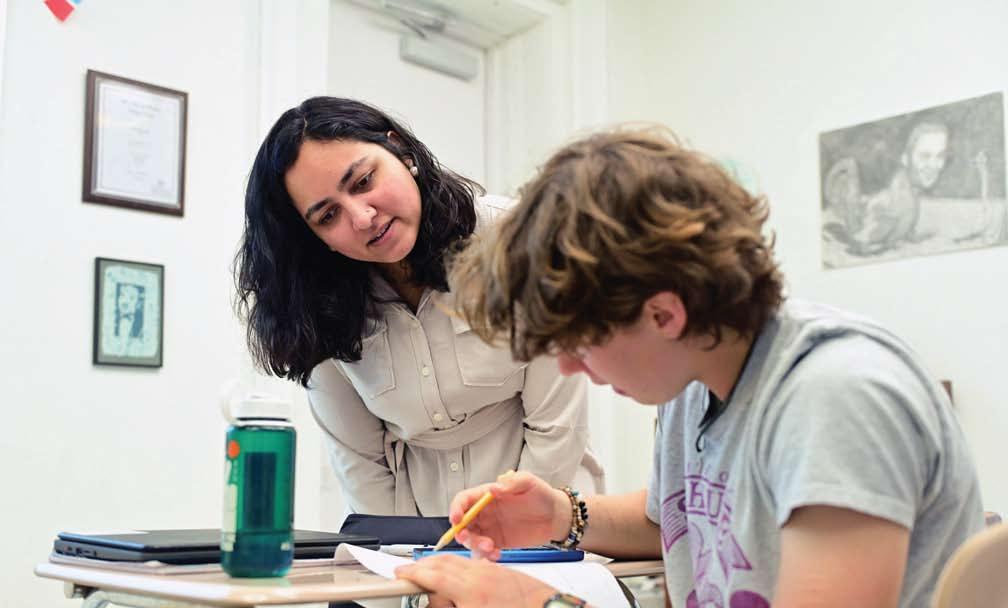

Our program is designed so that children with anxiety, depression, and other emotional complexities can thrive, succeed, and prepare for college.
Stevenson provides integrated therapeutic support that informs every aspect of our work with students in grades 8-12.
We have rolling admissions. To �nd out more about our school, contact us at admissions@stevenson-school.org or 212.787.6400.
212.787.640024 West 74th Street New York, NY 10023 www.stevenson�school.org
Does your child need extra support?
Boost academic, social and verbal skills to improve school success.
Chatty Child offers:
� Individual & group treatment for speech-language, occupational and physical therapy
� Therapeutic speech & language and socialization groups
� Creative arts & social clubs
� Week-long 2-hour treatment intensives (a combination of ST/OT/PT sessions provided intensively over a week)
� InterAct Theatre + Therapy Lab™ – classes & summer workshop program
� Feeding and oral motor treatment
� PROMPT therapy for apraxia of speech
� Handwriting instruction
� Sensory Integration therapy
� Individual & group language, literacy and creative arts tutoring
For Speech, Occupational & Physical Therapy, we accept:
� Private pay (coded invoices for out-of-network reimbursement for therapy services only)
� Tutoring, creative Arts classes and clubs cannot be coded for medical reimbursement.
To register, or schedule a tour, private consultation or evaluation, email info@chattychild.com, call 347.491.4451, or visit www.chattychild.com.
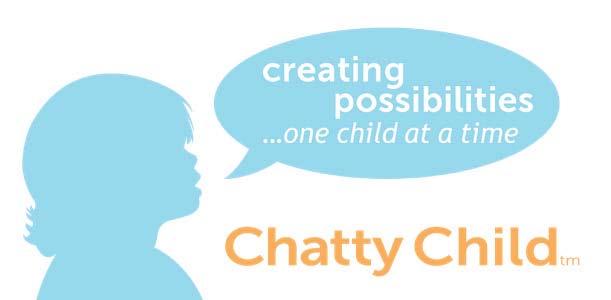
April 2024 | The Special Child 7
Choose In-Person or Remote Sessions
Confidence Blooms at Chatty Child!
Chatty Child Speech, Occupational & Physical Therapy, PLLC 325 Broadway. Suite 403 NY, NY 10007
asd (autism spectrum disorder) : A developmental disability that may delay your child’s speech, motor, learning, and social skills. Early intervention (see below) can help improve skills.
down syndrome : A condition caused by an extra chromosome that affects how your child’s brain and body develop. Diagnosis typically happens before or during birth.
emotional disturbance : Mental health disorders such as anxiety, bipolar, OCD, etc. that have no direct, identifiable cause. Be on the lookout for aggressive behavior, withdrawal or nerves related to social environments, and vocal outbursts in public places.
learning disability: Difficulty learning and grasping new concepts. Learning disabilities include dyslexia (reading), dysgraphia (writing), and dyscalculia (math). See Special Education for more.
stutter : A speech disorder that makes it challenging for your child to say what they want to say. You may hear them repeat a sound a lot, hold one sound for a long time, or stop speaking mid-sentence.
h elpful resources
oPWdd (office of People with developmental disabilities) : A New York organization that can help connect your family to nonprofit services, based on what kind of treatment/therapy they need, and provide funding.
transition planning : Creating an action plan for what your child with disabilities will do after high school. This is often a part of your IEP (see below).
service provider : An agency or organization that will help your family navigate some aspect of your journey. This could be everything from speech therapy to after school programs with a focus on special needs to horseback riding as a form of physical therapy.
includenyc : A non-profit organization that advocates for young people in NYC to be included in their communities: classrooms, workplaces, etc. They have super informative resources for parents of kids with disabilities, and they can connect you with professionals who can help you
navigate your options even further.
s pecial education inclusion : Everyone in the classroom feels welcomed by the school, teacher, and classmates. For kids with disabilities, inclusion is definitely a keyword to look for when choosing a school!
ieP (individualized education Program) : A written plan for your child’s education as a special needs student. According to the NYC Department of Education (DOE), this means your child is guaranteed a free and appropriate public education in a Least Restrictive Environment (see below). Your child’s IEP will also include development and progress reports, evaluation results, specific needs, and anything else that is relevant to your child’s success.
ieP teams : Your IEP team will be made up of you (as a parent/guardian), a school psychologist, a special education teacher (and sometimes a general education teacher), and the district representative. It may also include a school physician or other service providers who have worked with your child.
lre (least restrictive environment) : Your child will be in a classroom with kids who do not have a disability diagnosis.
setss (special education teacher support services) : Either a special education teacher will design specific activities for children with special needs or the special education teacher will collaborate with the general education teacher to modify the entire classroom to accommodate.
sedl (special education distance learning) : Modifying special needs education for virtual/online students. This became especially important during the pandemic.
sWd (students With disabilities) : Used to refer to special needs children in the classroom.
sc– special class : If your child’s needs cannot be met in a general education classroom, they will have all classes taught specifically by a special education teacher. These classes are typically very small in NYC schools, with up to 12 students for elementary/middle school and up to 15 for high school.
Pbis (Positive behavioral interventions & support) : NYC school-wide approach that encourages positive behavior instead of punishing or pointing out the negative. One example of this is changing a poster from “No Food. No Weapons. No Drugs.” to “School Rules: Be Safe, Responsible, Respectful”. This positive environment is especially important for special needs education.
treatment & evaluation
adl (activities of daily living) : Day-today actions like brushing your teeth, going to the bathroom, walking up and down stairs, etc. that are used to determine your child’s diagnosis and progress.
early intervention: Services and support for infants and young children with developmental disabilities. Early intervention can often help improve your child’s skills and progress.
ot– occupational therapy: Focuses on ADL’s (see above) and other everyday skills that your child will work on.
Pt- Physical therapy: Focuses on physical developmental disabilities and helps your child with mobility and movement.
speech pathology: Focuses on language and speech disabilities to help your child communicate their thoughts.
regression : Your child loses skills that they previously had. If regression happens, you may want to revisit and revise your child’s IEP (see above).
at (assistive technology) : Any device that helps your child’s special needs by improving their capabilities. AT’s include wheelchairs, text to speech, voice recognition, and more.
aba (applied behavior analysis) : A positive-reinforcement program designed to understand your child’s behavior in real life situations. It is most commonly used for children with Autism, but it can also be effective for other developmental disabilities.
developmental milestones : Key movements, expressions, speech etc. that show your child’s progress. For little ones, this may include smiling at people, crawling, copying sounds, and reaching for toys.
8 NewYorkFamily.com | April 2024
special child
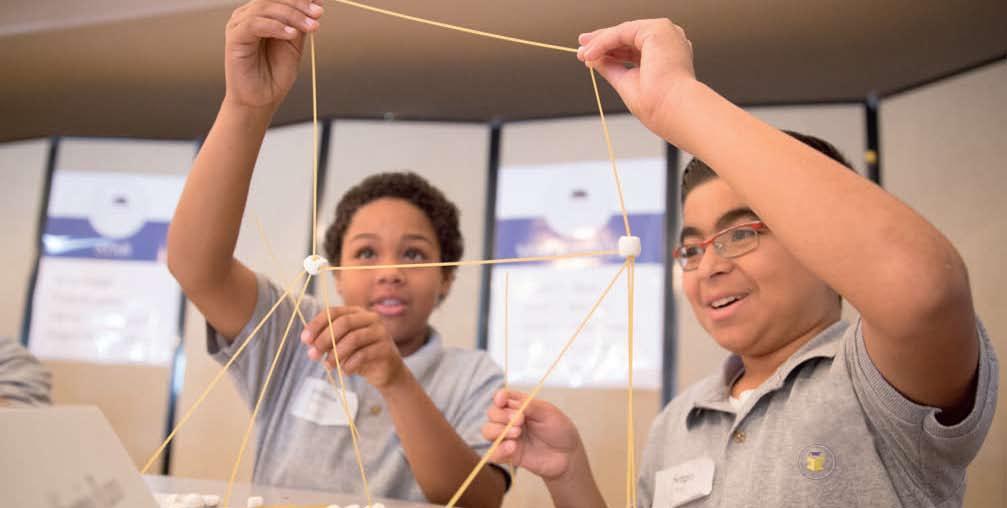
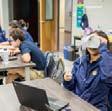


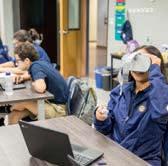










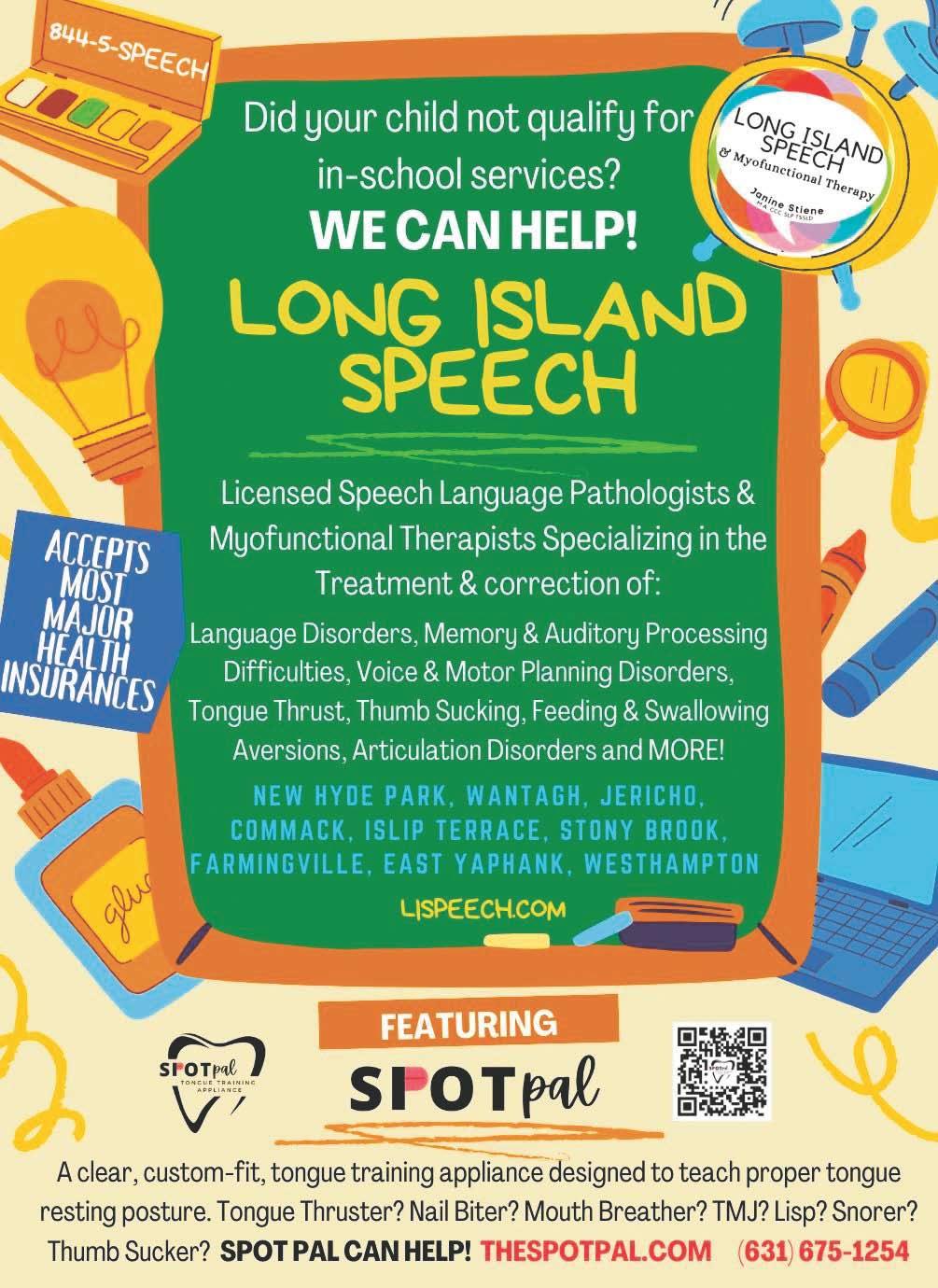
April 2024 | The Special Child 9 175-177 Gramatan ave. mount v ernon, n Y 10550 914.221.6929 x100 intellectusprep.org @intellectusprep STEPPINGSTONE DAY SCHOOL, INC. A Preschool Program for Children With and Without Disabilities Not for Profit — Established in 1983 Queens/Bronx Preschool Programs - CPSE Evaluations Speech/Language, Occupational, Physical Therapy & Counseling Services Family Support Services To find out more about SteppingStone Day School www.steppingstonedayschool.com SteppingStone Day School’s Preschool Program is Funded and Regulated By The New York State Department of Education, The New York City Department of Education and Licensed by The New York City Department of Health and Mental Hygiene, Bureau of Daycare
AUTISM
Steps to take if you think your child is on the spectrum
BY EMILY LEVY
Many parents have that ‘a-ha’ moment when they realize their child may have a more profound challenge than previously expectant. Unlike your friend’s kid at the same age, your child has trouble maintaining friendships, struggles to communicate, or demonstrates repetitive body movements. Perhaps they have difficulty relating to the world around them and seems inflexible with their thoughts and behaviors. If you notice these characteristics, don’t ignore them. While your child could be delayed, it may be wise to seek a professional opinion and check if your child may be on the autism spectrum.
Learn the Milestones
Many children with autism show developmental delays early on and don’t meet typical milestones. For instance, by 6-9 months, most babies can sit up without support, babble sounds, and respond to their name. By 9-12 months, babies typically grab objects and toys, crawl, and stand independently. Most children can walk independently between ages 1-3, climb stairs, jump, stack objects, speak in short sentences, and follow basic directions. Between ages 3-5, children can typically toss a ball overhand, get dressed independently, and draw a full person with all features. Children ages 6-12 generally have developed strong friendships with peers and are usually independent in completing their school work. If you notice delays or regression in any of these milestones and your instincts tell you something is off, your child may be at risk for autism.
Identifying Autism
If you think your child has autism, take action. The sooner you identify and address autism, the better it will be for your family. Speak to your child’s doctor; he or she may inquire as to whether all developmental milestones have been met and may recommend an autism screening. This screening typically consists of a series of yes or no questions regarding symptoms. If your doctor suspects

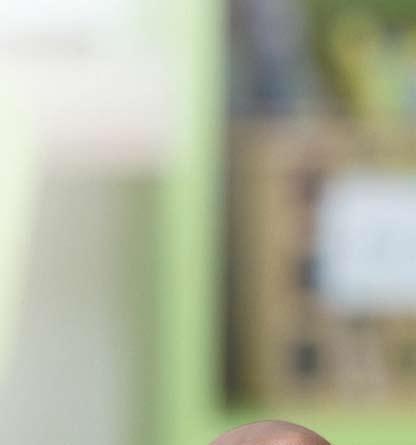



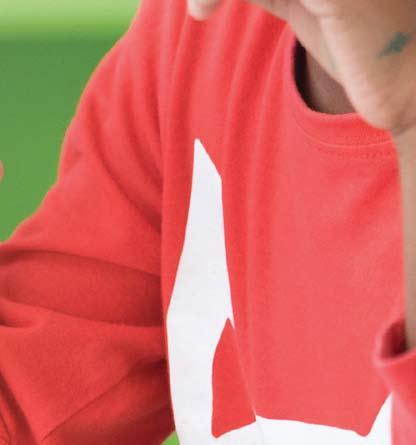


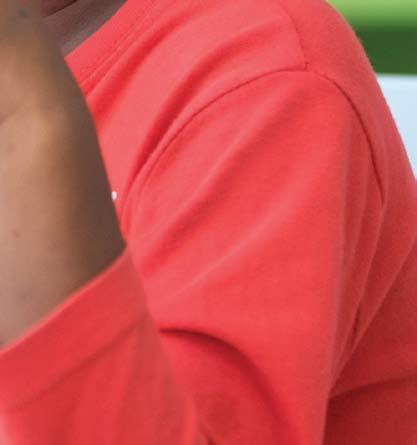
that your child may have autism, your child may need to have a full diagnostic evaluation by an ASD specialist. Typically, the evaluator will observe your child, ask you as the parent a series of questions, fill out questionnaires, and administer a series of tests to your child. These factors will allow the evaluator to identify whether or not your child may have autism so you can take appropriate action for a concrete diagnosis.
Your Child Receives an ASD Diagnosis — Next Step
First off, don’t panic. There are many resources and a great deal of support available for children with autism, and your child is certainly not alone! However, the earlier you intervene and seek your child’s services, the more gains you will see. Once you receive the diagnosis, which typically includes a full report, read it thoroughly and review the evaluator or doctor’s recommendations. Reach out to your child’s school to let them know about the diagnosis and inquire about creating an IEP (Individualized Education Program) to map out the services your child will receive based on their needs. These services may include special education classroom placement, speech therapy, occupational therapy, behavioral therapy, physical therapy, social
skills groups, etc. Also, learn what you can do at home to help your child, such as creating a set structure and routine and rewarding good behavior. The more you can work as a team with your child’s doctors, educators, and therapists, this will help provide consistent support to your child.
Many children with autism are kind, loving, high-achieving individuals who have countless gifts. With the right support, your child can succeed academically and thrive in life.
Dr. Emily Levy is the founder of EBL Coaching, a tutoring program that specializes in one-onone home and on-site instruction for students in grades preK-12 in NYC, NJ, and Westchester. She is also the author of Strategies for Study Success, a study skills workbooks series emphasizing test taking, note taking, reading comprehension, writing, and executive functioning strategies, and the Flags and Stars Orton Gillingham student workbook series. These books are currently used at schools nationwide. Dr. Levy studied at Brown University and later received her Masters Degree in Special Education and her Doctorate Degree in Education. She has spoken nationwide on research-based methods for teaching students with and without learning disabilities. Dr. Levy is currently the Director of EBL Coaching’s learning centers.
10 NewYorkFamily.com | April 2024
SPECIAL CHILD
The Westchester School
•
NYS approved and funded non-public school providing therapeutic and educational services to students diagnosed with AU, MD, ID, OHI, OI, ED, & PWD, ages 3 - 21, with locations in Yonkers & North Salem
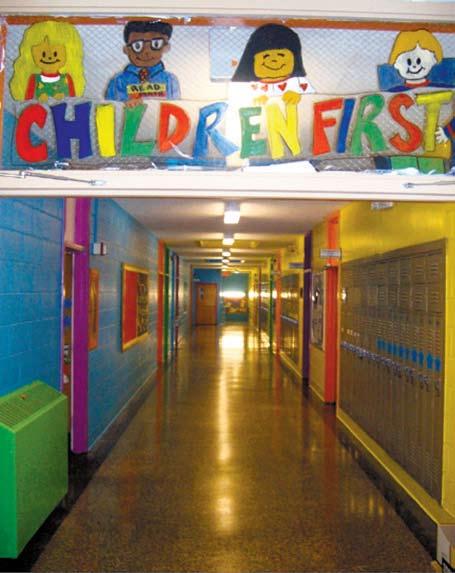
914 - 376 - 4 3 0 0
•
Ungraded, self-contained classrooms with a student to staff ratio of 12:1:4 & 8:1:2 in SchoolAged classrooms and a ratio of 10:1:2 in Preschool classrooms.
• C us tomized cla s sr o om ins tr uc tion ba sed on I E P goals, enhanced wit h S MA R T boards, I P ads, and compu ter s in ever y cla s sr o om
• C ounseling, B ehavior al S er vices, O ccupational T her apy, P hysical T her apy, a s well a s S peech and L anguage T her apy
• A s sis t ance wit h t r ansitioning to po s t academic life by pr oviding Vocational and J ob S k ill oppor t unities
• A daptive P hysical Education and a S ens or y R o om
ww w.wes tc hes ter sc hool.or g



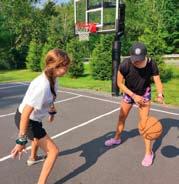
Camp Lee Mar is a 6 ½ week, private, residential summer program for campers ages 7-21. Our programming offers a unique learning experience that combines traditional camp activities with strong academics, activities of daily living, and speech and social skills development.
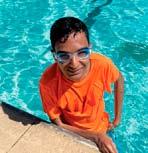
Only a short drive from New York City and Philadelphia, Camp Lee Mar is nestled in the beautiful Pocono Mountains of Pennsylvania. Year after year, both staff and campers return from around the world to spend their summers at CLM.
If you are interested in learning more about Camp Lee Mar you can either call us at 215-658-1708 during the winter or at 570-685-7188 during the summer.
Email us at Ari@leemar.com

April 2024 | The Special Child 11
A Special Camp for Special Kids
www.leemar.com 215-658-1708
Early Intervention for Dyslexia
Helpful tips from an expert
Statistics from the Yale Center for Dyslexia & Creativity show that dyslexia affects 20 percent of the population and accounts for 80 to 90 percent of all those with learning disabilities, making it the most common neuro-cognitive disorder.
While dyslexia is a chronic condition that’s rarely cured, early identification and intervention can help build essential skills for reading, writing and comprehension.
Early signs of dyslexia and intervention practices may vary from person to person. We sat down with Dr. Rebecca Mannis, learning specialist and founder of Ivy Prep, about signs of dyslexia that parents can look out for and what intervention may look like.
What are some early signs of dyslexia that parents can watch out for?
Toddler/preschool
• Delayed language development
• Difficulty following multistep directions
• Frustration in communicating – difficulty retrieving words or labels
• Difficulty sitting and retaining the story at circle time
• Meltdowns over communication and transitions
Preschool/primary school
• Difficulty with rhyming (ex: Dr. Seuss books) or appreciate language nuance (ex: getting the joke in Amelia Bedelia books)
• Lack of recall for reading common “sight words” they often see, such as “love” or “taxi”
• Lack of interest in reading or writing
• Contrast between strong interest in hearing stories (being read to) and interest in learning how letters fit together to make words
• Difficulty with segmenting words into sounds (c-a-t) or syllabication (clapping out the syllables in their names “Ga-bri-el”)
• Hesitation about attending school or academic performance
• Difficulty “encoding” or writing short words that can be sounded out or remembering the spelling of “Dolch List,” high
frequency (common) words like “love” or “mother”
• Reversing letters
• Skipping words when read aloud
• Slowness at blending sounds of words or recalling what sight words “say” (lack of fluency/automaticity)
• Dysgraphia, or difficulty in the motor planning of how to hand write letters
What does early intervention for dyslexia look like?
This depends on the individual child’s learning profile and what is being done on-site (or not provided) at the school. Some
children require specialized schools for dyslexic students, where systematic, multisensory approaches are used on a daily basis and across the classes a child has each day.
Other students can thrive with customized support outside school with learning specialists who are trained to interpret test findings and develop an intervention plan that speaks to the specific child and the specific school’s curriculum.
This is where it is particularly important for parents to do their homework. Not all learning specialists have the same training or vantage point about support, and it is big business.
12 NewYorkFamily.com | April 2024
special child
? ? ? Y L I ?
E M D A F X S O
There are different philosophies and approaches, and sometimes what is presented as “evidence based” is actually a cookie cutter approach – or the wrong pacing and sequence for your child’s particular needs.
For example, if a student needs high repetition of information or to preview information in order to keep up with the class work, then it is important for a learning specialist to design sessions that balance the specific instruction for underdeveloped skills that are not course-related (for example, how to divide long words into syllables) while also using the child’s homework spelling list or the sight words in their science chapter to manage schoolwork and get that real-time reinforcement of reading strategies that speak to the daily experience in the classroom.
Similarly, it is critical for parents to identify professionals who can balance traditional print tools, such as workbooks and games that reinforce the skills, with adaptive technology. This is where parents can feel particularly frustrated, as neuropsychologists are not educators, and educators are not neuropsychologists.
Approximately 80 percent of my clientele and I start with a consultation where I provide a chart review to demystify the test findings to help parents “connect the dots” between their observations, test findings, and working with schools or other stakeholders.
There is a huge element of “caveat emptor,” since so much of this is not licensed and these high stakes serials can overwhelm kids and parents alike.
Even when specialists have licenses, there is wide variability in skill set, how intervention sessions are constructed, and even attitudes about which support is needed.
For example, at times language specialists or occupational therapists will feel there is more work to be done in grade 4 or 5 in shoring up underdeveloped language or fine motor skills, while other specialists may feel that the priority needs to shift toward teaching students how to communicate better in writing or use adaptive tech, dong so with an eye toward ongoing challenges in processing speed, word finding or handwriting.
How can parents and schools support a child with dyslexia?
Support for dyslexic students is equal parts, art, science, and alchemy.
It’s critical for there to be a systematic approach. Sometimes that means using very similar materials in both outside support and
“There are different philosophies and approaches, and sometimes what is presented as ‘evidence based’ is actually a cookie cutter approach – or the wrong pacing and sequence for your child’s needs.”
during the academic day or in reading intervention at school.At other times, it makes more sense to “divide and conquer.”
For example, at school, a teacher may be focusing on how to write a paragraph with a topic sentence, three supporting details, and a conclusion using a “quick outline” that is very structured, streamlined, and predictable.
In remediation, it can be very helpful for the outside specialist to use the same “quick outline” that the teacher uses in history class. And it may be important to work on writing while using the History assignment if the child is fatigued or has other after-school activities that day.
However, the outside learning specialist may also be incorporating instruction in how to use a predictive word processor, or in helping the child with expanding his vocabulary, so that he doesn’t rely on a narrow lexicon of words to communicate his point in the essay.
Similarly, it may be that at school, the teacher is working on a particular spelling curriculum, where the focus is on spelling words with particular prefix patterns.
In outside support, those words can be practiced, but it’s important to use particular methods that are aligned with the child specific type of dyslexia to ensure that appropriate visual cues or phonetic (sound-letter) patterns are reinforced.
The truth is that this takes a great deal of expertise and time in order to identify ways that support can be integrated while also being realistic about what each individual can contribute to this process.
In the absence of this, it can be very time-consuming and confusing, and also frustrating, not only for the children, but for their parents.
In my practice, I am in frequent contact
with other stakeholders, and typically serve as a case manager, who integrates that information, not only to demystify the process, but also to help parents identify signposts that they can be looking for both to monitor their children’s growth, and to determine the best investment of their resources and the child’s time, if they’re not satisfied with the child’s development.
Another element of providing services to the child and family is helping parents truly understand the different philosophies and methodologies that are available to help children with disabilities.
For example, many specialists will encourage a multisensory, phonics based approach that reinforces sound patterns for children since about 60 to 80% of children with dyslexia have difficulty with phonology, or linking letters to sounds.
However, the research on these highly structured methods and their efficacy with children with more spatial difficulties, sometimes called “NVLD,” or nonverbal.
Learning disorders are mixed. In that situation, a child may need a well developed, but more eclectic approach that helps them for example, to memorize and write sight words, words like “though” or “again,” words that cannot be sounded out phonetically.
Similarly, there are some schools that believe strongly that in the lower school grades, adaptive technology should not be used with children, while other outside specialists or schools integrate technology as a literacy tool for children with developmental dyslexia from the get-go.
Because there is such a wide wide range of approaches, and often neuropsychologists don’t know the nuts and bolts of how these programs are implemented for specific curricula, it is important for parents to understand that, just like learning to read is developmental.
In the same way, learning how to line up your ducks in a row to best serve your child at a given time is an extended learning process – and process of collaboration and empowerment – for parents, as well. No one cares about a child more than a parent, so it is critical to take care of yourself so that you can manage the long haul, along with your spouse and child.
What do accommodations typically look like for dyslexia, at home and in the classroom? What would workarounds look like in everyday life?
Accommodations can look different for children, depending on their learning profile, their school, their grade level, and the situa-
April 2024 | The Special Child 13
tion in which accommodations are necessary.
For a child with language-based dyslexia in the early grades, accommodations might take the form of an alternate method of assessing a child’s spelling, or having an extra set of workbooks to keep at home for use with the outside specialist. The child may be permitted to write fewer spelling sentences on his exam.
That child might need access to a computer in grade 3 to write his weekly journal so that he can focus on expressing his ideas without being encumbered by dysgraphia, or handwriting difficulty.
At grade 5 or 6, that might take the form of being able to have extended time on a test or to take a standardized test in a room over multiple days. Similarly, the child might require some adaptive technology or access to a textbook website, where the child can find PowerPoint slides to preview key terms or information that they will be studying in science class.
Upper school or college, that might take the form of having an advisor, who is attuned to their learning issues, and who can guide them in managing multiple classrooms and teachers. Similarly, children may require the accommodation of being able to substitute the format of a “computer-delivered” standardized admissions or achievement test, instead taking the test in a traditional booklet format.
That means that the child can write into a test booklet with a proctor. Copying his answers onto a Scantron or “bubble sheet,” rather than needing to visually track the paragraph on a computer monitor.
This is a critical accommodation because many standardized tests are moving toward “computer- adaptive,” or mini computer tests, which are actually constraining for students who have a more gradual learning curve, visual deficits, or a slower processing speed.
Similarly, a dyslexic child who has slow processing speed or working memory difficulty may need extra time to complete certain assignments, or may need assistance with laying out a plan for how to manage school and extracurricular activities in light of their slower processing speed or executive function difficulties.
Students in high school or college may also need approval to tape record lectures, or have access to teacher notes or classmates notes if they’re not able to process as much detail as necessary in real time during the lecture.
This is why it’s critical to identify specialists who can mystify neuropsychic, test findings and help parents and students to work with the school around accommodations,
“Children can develop ‘metacognitive awareness,’ or an understanding of themselves as learners, and why certain approaches can be particularly helpful for them.”
curriculum, and intervention.
Support from parents is important for children with dyslexia. How can parents show their emotional support for their dyslexic children?
Any time that a person‘s own development takes a course that is not “typical,” this places a stressor on the individual and the other people in their life.
Whether it’s learning how to tie your shoes, how to memorize the spelling words, or adapting to college textbooks and lectures as a gifted, “twice exceptional” dyslexic, ultimately developmental, learning problems are a lifelong process of learning, adaptation, and advocacy.
The upshot is that over time, children can develop “metacognitive awareness,” or an understanding of themselves as learners, and why certain approaches can be particularly helpful for them. Over time and significant support and practice, this helps kids learn how to be their own “change agents.” However, this is a gradual process, and developmental learning problems, especially for bright kids, in demanding learning environments, is a gradual experience.
It is important for parents to recognize this, so they can think tactically about how they can support their children while also taking care of themselves.
Whether it’s having sufficient time to work out or finding a sounding board to talk about frustrations while also being there to help your child with extra homework, parents need to plan for the immediate and for the long run.
That may be a matter of doing some careful looking at how you will fund outside support for your child for the long run, or how to give attention to siblings and their needs. This can be a difficult, disheartening, and stressful experience for even the most determined, loving, supportive and capable
of parents.
Aside from taking care of themselves and building a village of outside resources, whom they respect, parents can model for their children along the way.
For example, just as children may require more time in order to research and write a term paper if they are dyslexic, parents can model for their children how they are breaking down the process of updating their resumes or planning of family trips by working in manageable chunks.
In addition, it is important for parents to remember that their job is to be parents and not educators or interventionists. Otherwise, the task and frustration of helping kids manage learning issues for the long run can really interfere with a parent and child relationship and can be disheartening for everybody involved.
Most importantly, parents can help their children, identify factors that contributed to their own success, or what it is that children feel need to be done differently in order for them to have a better experience in a similar situation in the future.
For example, if a child is able to juggle the start of baseball season in his Little League team and preparing for the spelling bee, parents can encourage their children, self reflection, or metacognitive awareness, by asking them some open, ended questions. “What do you think made the difference when you were going to have a busy day of both Little League tryouts and reviewing all three vocabulary lists?”
This opens the door for the child to then reflect and share so that you can plan. For example, he may say, “It was very helpful that my learning specialist and I wrote the words on flashcards last week. This meant that all I needed to do was practice spelling.” Or your child may feel that it was helpful when you and he use Scrabble letters for him to practice the spelling of the words or when you had located a website that let him practice unscrambling words in an app.
It may be that your child felt better having had a quiet day before so that the reduced transitions left him feeling more rested and able to juggle Little League and the preparation for the spelling bee.
The more you help your child self reflect, the more you can help him, celebrate his success, identify what he feels and be his own change agent. It can make the difference, and he will see you as the support and sounding board who is cheering him on through this developmental journey.
14 NewYorkFamily.com | April 2024
speCial Child
The perfect balance of education and nature to create a great foundation for learning.

Located in Gowanus, Brooklyn, Rivendell Preschool is an ‘amplified’ Montessori program for children ages 2 – 5. At Rivendell teachers know that learning to get along with a wide range of friends and respecting their similarities and differences has lasting benefits for each student! Visit Rivendell for an inperson tour of our classrooms, rooftop play yard and backyard Growing Connections greenhouse where children and teachers work and play together. Email Kara.pereira@rivendellnyc.org to join an in-person weekday morning tour.
In-Person Tours
for 2024-2025 Admissions Starting NOW!
rivendellnyc.org
718-499-5667
277 Third Avenue Brooklyn, NY 11215
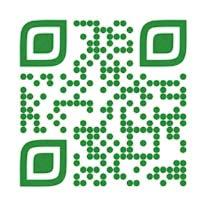



is now part of
Mommybites.com provides expertly curated resources for all parents in the New York area, including our most popular feature — our mom-generated nanny board — the best online source for parents to find vetted (by other parents), experienced nannies and childcare providers who want to work in New York City, Westchester, Long Island and Northern New Jersey.
MommyBites.com
We can’t wait to see you there!
April 2024 | The Special Child 15
ADHD in Children
Symptoms, causes and treatments (other than medication!)
By Jeannine Cintron
Ithink my 12-year-old daughter has ADHD, but she’s not (yet) been diagnosed. Why? Because when I finally decided to have her evaluated, after years of being on the fence about it, I was advised against “opening that can of worms" as long as none of her teachers had ever recommended it.
Can of worms? Really?
While none of her teachers ever expressly recommended an evaluation, I always heard things like “takes forever to complete classwork” and “has trouble focusing” and “gets distracted easily.”
ADHD, or Attention Deficit Hyperactivity Disorder, is described as a chronic neurological condition marked by persistent inattention, hyperactivity, and sometimes impulsivity. It is one of the most common mental conditions in children. Around 6 million children ages 3 to 17 have been diagnosed in the U.S. alone, according to the CDC.
Despite the staggering statistics, I think a lot of people - even professionals, apparently - have this stereotypical view of ADHD that it's just an excuse for lazy or bad behavior, one many parents use to medicate their children into being good without even considering whether other treatments are available. That stigma leads a lot of parents (myself included) to assume medication is the only way to treat it, and that the medication will turn their kids to zombies anyway.
But if your child is showing signs of having a developmental disability like ADHD, don't be like me and wait until they are halfway through middle school before you finally decide to take action just because a teacher never told you to. No one knows your child like you do, so if you are concerned, have them evaluated and know there are options beyond medication (and also know that medication might actualy end up being the right choice for your family).
I spoke to Dr. Rebecca Jackson, a board certified cognitive specialist, Brain Wellness Expert, and author of Back on Track: A Practical Guide to Help Kids of All Ages Thrive , which delves into developmental red flags, to learn more about ADHD, why diagnosis seem to be
on the rise and what parents can do if they are concerned.
ADHD Signs & Symptoms in Children
Hyperactivity. According to Dr. Jackson, the “H” in ADHD, as in hyperactive, tends to be more noticeable in younger children. "The older your child is, the less likely you are to note the hyperactivity,” she says. “The hyperactivity component tends to be the piece that draws attention the most. It’s disruptive in the classroom, at the dinner table, on playdates. So oftentimes, the first sign or symptom that parents see is the hyperactivity impulsivity, because of all the disruptions happening.”
Inattentiveness . “What is much more easily missed is the inattentive type of ADHD,” she continues. “And that one becomes more evident the older a child gets, because with that you don’t have the loud disruptive behaviors, but you see heightened challenges with executive functions. This is going to be the child that does the homework and forgets to turn it in. And as a parent, you’re like, ‘Are you kidding me? You already did the hard work!’ You find yourself saying, ‘why didn’t you just…’ all the time. Why didn’t you just remember to bring your lunch with you in the morning? Why didn’t you just turn in your homework?”
Limited Attention Span . We all have a natural window of attention, according to Dr. Jackson, and our attention develops with age and maturity. “A two year old is only going to do a thing for two to four minutes at a time. But by the time they get to kindergarten, a child should be able to sit in the circle and participate for a longer period of time. So as a parent, if you’re not seeing your child’s natural window of attention improving over time, and if everybody else in the class is able to attend to the task long enough to complete it, but your child’s needing redirection or needing to bring it home, that is a red flag.”
Task Switching . Executive functions are our ability to achieve a goal, like turning in homework to get good grades. Individuals with ADHD have a harder time with task switching and with executive functions. “Let’s
say I’m working on a project and my phone dings to tell me I have a text message. I’m going to shift my attention to my text message,” says Dr. Jackson. “Task switching should remind me to go back and finish the project that I started. But with ADHD, it’s harder task switching when the brain is not remembering to go back and finish what it started. Lots of started things don’t get completed.”
Emotional regulation . People with ADHD tend to have difficulty managing frustrations. We all have a point where we get frustrated and upset, or we cry when we’re really angry or we lose our temper. “With ADHD there’s an immaturity in some of those networks and pathways in the brain, and so the upsets can happen more frequently,” Dr. Jackson says. “They can last longer and they can be bigger. And so if you’ve got a daughter that’s really dramatic and always getting super upset with friends, that can be a red flag. Or a boy playing on the playground who gets super upset because people aren’t following directions, that can be a red flag. And again, we all have a threshold of when we lose our temper. But if it’s happening more consistently than peers that are appropriate in their development, that’s a concern.”
Causes of ADHD
So what causes ADHD? That’s the million dollar question, Dr. Jackson says. “There are a lot of different factors that can contribute to ADHD. Both genetics and environmental factors can play a part. If a child experiences trauma, abuse
16 NewYorkFamily.com | April 2024
special child
or neglect, it can interfere with development.
"But there’s also the times where I meet a parent with two kids, same household, same environment, same genetics, and one child is thriving while the other faces challenges with ADHD.”
Technology & ADHD
I asked Dr. Jackson if the overuse of technology is a factor in developing ADHD. “I’m not going to say that scrolling social media and gaming causes ADHD, but what I am going to say is that the individual with ADHD is going to be even more susceptible,” she says. “When we’re spending large chunks of time, scrolling the Internet, whether we’re watching YouTube videos or Tik Tok, videos or gaming, the type of attention we’re using is heightened attention. And when you’re in that hyper focused mode, you lose awareness of time and of what’s happening around you. It’s why when you go to bed at night and say ‘I’m just going to check my phone for a minute,’ before you know it an hour passes and you’re still scrolling.
“Hyper focus is incredibly fatiguing on the brain. It makes the brain exhausted. Let’s say you’ve got an eight year old who just spent two hours on Tik Tok or watching YouTube videos or gaming. When you ask them to stop, you’re going to get tears, pushback, negative behavior. It’s not just that they don’t want to stop. It’s that we just allowed them to completely fatigue their brain and their resources. And now we’re asking them to be able to regulate their mood and emotions.
“When you watch something that you
like, funny dog videos for example, there’s a dopamine release in the brain.that gives you a burst of energy.
“So when a parent asks why they can game for an hour but they can’t do 20 minutes of math, it’s because gaming is short bursts of attention strung together with a dopamine reward in the brain. When you’re doing math, there’s no dopamine reward in the brain. So our kids are exercising their reward-driven pathways, not sustained attention. The individual with ADHD is starting with a brain that’s already fatigued, so they’re going to fatigue even faster. And that dopamine is hitting them hard and so they’re going to gravitate towards those activities even more. As parents, we don’t want to ban things but be mindful of the balance. So say, ‘sure, you can spend 20 minutes online, but you’re going to get your homework done first. We shouldn’t have you gaming and fatiguing the brain before you do homework. And then we don’t want it in the hour before bed because it can disrupt the ability to fall asleep and the quality of sleep.”
ADHD Treatment
Speaking of quality of sleep, that’s one of the components to managing ADHD on a daily basis to support the level of function that you currently have. Dr. Jackson recommends making sure kids are getting adequate sleep and eating nutritious foods. “We know that sugar drives inflammation and so does highly processed food. Inflammation is like asking your brain to function with fog. What you eat matters,” she says
Medication
To medicate or not medicate, that is the question. There can be many side effects related to ADHD medication, and so naturally parents might be hesitant to try it on their child. Conversely, some parents might think medication is the easy cure-all their child needs to get back on track.
Anytime there’s medication, there’s a trade off, Dr. Jackson explains. “There are pros and cons, risks and benefits that it’s important for parents to understand. We talk to so many families that are getting pressure from teachers or from other adults in their life to medicate their child. But that is a decision solely between the parent and the physician, that should not be based on outside pressure from others.
“I don’t ever want a parent to feel guilty about a decision they make. But there’s this misnomer that we’re going to start medication and all of our problems are going to be solved. It’s difficult figuring out what’s the right medication
for your child, the right dosage and combination. And what works now might not work six months from now. So it’s not always the quick, easy fix that parents think it’s going to be.
“What we know from the research is that there’s an impact on growth and development. A child that has been medicated over time might not grow to their full height. We know within the first several months of taking medication, there’s not always long term change in the grades and learning outcomes. So the studies were mixed in terms of how it helps with academics and learning. A lot of kids experience decreased appetite, so we have kids that already have immaturity and brain development, and our foods that we eat fuels the growth and development of our brains. We’ve got an immature brain and a suppressed appetite, and that worries me for the future development of that brain."
Brain Balance
While medication can help, there are other treatment options that parents might not be aware of. Dr. Jackson is Chief Program Officer for a company called Brain Balance, which is a program that builds and strengthens networks and pathways in the brain through specific stimulation, exercises, and activities. “I always say we exercise the brain the way you use it in real life," she says. "At Brain Balance, we’re engaging multiple different senses while a child is doing coordinated, fast, accurate eye movements with auditory processing, visual processing, body coordination, rhythm and timing, exercising and engaging as many networks and pathways as we can simultaneously. And then we engage those pathways over and over to make them stronger, faster, more efficient.”
A child does not need an official ADHD diagnosis for this kind of non-medicated treatment, either. Nearly 10% of kids in the US right now qualify for that diagnosis, but nearly 17% of kids qualify for what is called a subthreshold diagnosis, meaning they’re falling just shy of the criteria. I think this is really important because the kids can still be struggling to keep up, to pay attention and to regulate mood and emotions. With subthreshold ADHD, there’s immaturity of the brain, but maybe not quite to the extent of full ADHD, so they don’t qualify for a label or a diagnosisand would not be prescribed medication - but that doesn’t mean that they still don’t need help and support.”
To learn more about Brain Balance, go to brainbalancecenters.com. Dr. Jackson’s book, Back on Track, is available on Amazon.
April 2024 | The Special Child 17
autism b ehavioral consulting s ervices
Karen Bottalico, SAS, SDA 516-851-8330
kbottalico2002@yahoo.com
An Educational Consultant serving Queens and Long island and the NY Metro area. Working directly with families, services include: Evaluating placement and service options; Accompanying parents throughout the entire CPSE or CSE process which includes meetings, screenings, observations and extensive education history reviews. Other services include Staff Training, School-Based Consultation, FBA Assessment and B i P implementation, Verbal Behavior Training Techniques, Behavior Management Strategies, Home/School intensive Behavior intervention Services, Crisis intervention and Prevention, Home-Based Services and Parent Education Training.
c amp kodiak
200 Kodiak Road, McKellar,
Ontario, Canada 905-569-7595
campkodiak.com
info@campkodiak.com
Camp Kodiak is Canada’s premier overnight summer camp for children and teens (6-18 years old) with and without learning disabilities, ADHD and ASD Level 1.
Some highlights include:
• Social skills program
• Academic program
• 50+ activities
• Mature, professional staff
• 2:1 camper-to-staff ratio
• leadership program for 16to 18-year-old campers
• Comfortable log cabins with electricity, bathroom with shower
• Located 2.5hrs north of Toronto, Ontario
All campers deserve a summer of fun, friends, and success!
c amp l ee Mar
450 Route 590 Lackawaxen, PA
Winter: 215-658-1708
Summer: 570-685-7188

leemar.com
A private, seven-week residential summer program offering a unique curriculum incorporating a strong Academic and Speech program with traditional camp activities. Campers flourish at Lee Mar due to the structured environment provided allowing campers to feel comfortable and secure. Careful study is made of parent input, school (i EPs), camper interview, etc., so that the interests and needs of each child can be determined for suitable grouping prior arrival. Camp Lee Mar focuses on improving the daily living, social, and life skills of their campers, while giving them the happiest summer of their lives!
chatty child s peech, o ccupational & Physical therapy, P llc
325 Broadway Suite 403 New York, NY 10007 347 491 4451 info@chattychild.com chattychild.com
Chatty Child is a personalized therapeutic center for children and their families located in downtown Manhattan. We offer caring, compassionate and creative personalized treatments for children in need of speech, occupational & physical therapy support within our beautiful and welcoming clinic & interactive sensory gym. Chatty Child also offers a variety of therapeutic groups, tutoring, creative arts classes, and social clubs — all within an inclusive & diverse community.
comprehend the Mind P.c . 114-20 Queens Blvd., Suite CS 2, Forest Hills 718-441-0166
comprehendthemind.com
Comprehend the Mind is a group of school and neuropsychologists that diagnose and assess a variety of conditions. Neuropsychological, educational, speech and language, and psychiatric evaluations are performed to help you understand your child’s strengths and weaknesses, and plan for their educational success and emotional wellbeing.
Family s peech center
25-32 168th Street, Flushing 718-939-0306
familyspeechcenter.com
familyspeechcenter@verizon. net
Certified Speech-Language Pathologists evaluate and diagnose children to identify specific speech, language or swallowing difficulties. Services include speechlanguage evaluations and treatment for individuals with articulation and stuttering problems. Assessment procedures depend on the age of the client; very small children are assessed in an informal play-based environment.
Medical plans and Dept. of Ed i EP’s are accepted for both preschool and school age children.
the g illen b rewer s chool
410 East 92nd St. New York, NY 10128
212-831-3667
gillenbrewer.com
admissions@gillenbrewer.com
The Gillen Brewer School offers students pre-K to 8th grade an academictherapeutic approach to special education. Their mission is to educate and support students to become confident, independent, and engaged learners. Their program features a hands-on, language-based curriculum that integrates speech and language therapy, occupational therapy, counseling, and social groups into each child’s schedule. Children from across NYC are immersed in learning that is developmentally appropriate and socially engaging.
the ideal s chool of Manhattan
5 Hanover Square New York, NY 212-769-1699
theidealschool.org
inclusion Education in the Financial District. The i DEAL School of Manhattan, New York’s only K-12+ independent inclusion school, is now located at 5 Hanover Square in the Financial District. At i DEAL, they believe that differentiated learning is the key to academic excellence. Their supportive environment is nurturing, and their robust
18 NewYorkFamily.com | April 2024 S pecial N eed S d i R ecto RY | Special Advertising Supplement
Check us out Online! We’re the #1 print & digital lifestyle platform for engaged parents in New York. Visit newyorkfamily.com for daily stories and to sign up for our weekly newsletters!
academic program allows students to thrive with curriculum designed to meet them where they are. Learn more at an open house or email admissions@theidealschool.org to schedule a tour.
intellectus Preparatory charter school
175-177 Gramatan Avenue
Mount Vernon, NY 10550
914.221.6929 x110 | www. intellectusprep.org
“Non Scholae Sed Vitae” - We learn not for school, but for life.
i PCS offers priority application priority for scholars with disabilities, currently serving grades 6-9 with plans to expand to grade 12 in the coming years. Achieving firstyear mathematics proficiency results over 30% above state levels, i PCS is dedicated to providing an inclusive, equitable educational experience. Through integrated coteaching, experiential learning, and a focus on personal development, it addresses educational quality, conflict resolution, and economic challenges. i PCS is looking to respond to demand through self-contained classes. Committed to community impact and fostering social responsibility, i PCS prepares scholars for academic success and informed college and career choices.
long i sland s peech
Nine locations lispeech.com
Long island Speech is the leading speech therapy provider on Long island with 9 locations in Nassau and Suffolk County. They specialize in Myofunctional Therapy, PROMPT, Voice Disorders, Fluency, Augmentative Communications, Articulation, Feeding Therapy, Auditory Processing, Expressive/Receptive Language Disorders and so much more. Long island Speech participates with most major health insurance companies and offers evening and weekend hours. Call 844-5-SPEECH to schedule your first appointment, or visit LiSpeech.com.
i ntellectus Preparatory charter s chool
175-177 Gramatan Avenue Mount Vernon, NY 10550 914.221.6929 x110 intellectusprep.org
i PCS offers priority application priority for scholars with disabilities, currently serving grades 6-9 with plans to expand to grade 12 in the coming years. Achieving firstyear mathematics proficiency results over 30% above state levels, i PCS is dedicated to providing an inclusive, equitable educational experience. Through integrated co-teaching, experiential learning, and a focus on personal development, it addresses educational quality, conflict resolution, and economic challenges.
r ivendell s chool
277 3rd Ave. 718-499-5667
rivendellnyc.org
Kara.pereira@rivendellnyc.org
Located in Gowanus, Brooklyn, Rivendell Preschool is an ‘amplified’ Montessori program for children ages 2 – 5. At Rivendell teachers know that learning to get along with a wide range of friends and respecting their similarities and differences has lasting benefits for each student! Visit Rivendell for an in-person tour of the classrooms, rooftop play yard and backyard Growing Connections greenhouse where children and teachers work and play together.
robert louis stevenson school
24 West 74th St. steveson-school.org admissions@stevensonschool.org
Stevenson is Manhattan’s therapeutic college preparatory independent school. Their proven track record of academic and therapeutic progress begins with their unique program. Stevenson students receive small classroom instruction, intensive advisor support, and on-demand access to a fully staffed Counseling Center throughout each day. Furthermore, their Transition Coaching Program helps to promote post-secondary success. Anxiety and depression
aren’t locked into a calendar. Neither is Stevenson’s Admissions. Apply today.
the s hefa school
40 E 29th St, New York, NY 10016
212-873-1300
info@shefaschool.org shefaschool.org
The Shefa School is a Jewish community day school in Manhattan serving students in grades 1–8 who benefit from a specialized educational environment in order to develop their strengths while addressing their learning challenges. They serve students with languagebased learning disabilities who have not yet reached their potential levels of success in traditional classroom settings. Shefa is a pluralistic community school serving families across the range of Jewish involvement and observance.
stepping stone day school
2826 Westchester Ave, Bronx, NY 10461
718 554 2025
steppingstonedayschool.com
37 years ago SSDS opened its doors to provide services to children. The schools have remained true to the original vision which embraced the sentiment that “All children can”. SSDS continues to be at the forefront of best practices in early childhood services.
Westchester s chool
45 Park Avenue, Yonkers, NY
33 Seymour St., Yonkers NY 520 Route 22, North Salem NY 914-376-4300
westchesterschool.org
The Westchester School is a New York State approved, non-public school that provides educational and therapeutic services to students from Long island, New York City, the Hudson Valley, and Connecticut. With campuses in Yonkers and North Salem, NY the program provides services to over 300 students with the classifications of Autism, intellectual Disability, Multiple Disabilities, Orthopedic impairment, Other Health impairment, Emotional Disability, and Preschool Student with a Disability.
Winston Preparatory school n ew york
126 West 17 Street New York, NY 10011
212-496-8400
winstonprep.edu/ourcampuses/new-york nyadmissions@winstonprep. edu
Winston Prep New York offers a highly individualized learning environment for students grades 4-12 with learning differences, including dyslexia, ADHD, and nonverbal learning disabilities (NVLD). Winston Prep fosters a learning environment where each student feels understood. Winston Prep’s research-driven model for students with learning differences results in extraordinary transformations in their lives and learning. Register for an Open House at winstonprep. edu/new-york or contact our admissions team at nyadmissions@winstonprep.edu.

April 2024 | The Special Child 19
Special Need S
All parents need resources, information, and guidance. These tools help aid our children with their needs and growth.
Special needs parents lean on helpful information and especially count on a community to assist them in their special needs journey. It is those insider tips, those teachers, experts, and schools we need to know about and make a difference in our child’s life.
Here are people who are part of our (and your family’s!) Special Child Community.
ilana Stoch Director, Camp Kodiak

Ilana has worked at Camp Kodiak since it began in 1991. After completing her undergraduate degree, she worked in the fields of outdoor education and adventure recreation before earning her Bachelor Degree in education. Over the course of 16 years with the Peel District School Board, she worked as a classroom teacher, special education teacher, ESL teacher, and guidance counselor. When the camp’s founder passed away, Ilana stepped into the role of year-round Director.
ari Segal
Director, Camp Lee Mar
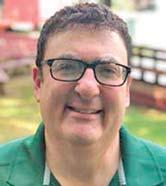
Ari first became involved in working with the special needs community because of his lifelong exposure to his father’s pioneering work with The Guided Tour, Inc., a supervised vacation program for adults with special needs. Ari’s son with special needs was a camper at Camp Lee Mar for many years. Today, Ari continues the mission of providing a growth-producing, memorable life experience for young campers with special needs. Ari received a degree in Psychology from the University of Maryland, and a Master of Social Work from Temple University.
Heather Boerner
Owner & Head Speech-Language Pathologist, Chatty Child Speech, Occupational & Physical Therapy, PLLC
Heather Lynn Boerner M.A., CCC/SLP is founder & head Speech-Language Pathologist of Chatty Child. Heather has built a national reputation for treating and advocating for children with disabilities. Her own personal experiences and strong clinical skills guide her to bring positive change and possibilities - to each child. Heather brings a caring and compassionate lens to each challenge. Heather’s treatment principals are rooted in a creative and holistic approach to learning, healing and growth.

Sanam Hafeez
CEO, Comprehend the Mind P.C.
Dr. Sanam Hafeez, is a NYS licensed Psychologist. Dr. Hafeez founded CCPS, (Comprehend The Mind) in 2006 for neuropsychological assessments. Dr. Hafeez has taught at many universities and speaks as an expert on a variety of educational, medical and legal platforms. Dr. Hafeez is highly sought out by the media, as an expert on various issues. She advocates for the neurodivergent and the underserved. Dr. Hafeez enjoys her time most with her twin boys.

rebecca Skinner
Head of School, The Gillen Brewer School
Rebecca joined the Gillen Brewer community as Head of School in July 2021, bringing with her over 18 years of experience building and leading mission-driven independent schools in New York City and Dubai at International School of Brooklyn, Blue School and Dwight School Dubai. Rebecca is happiest when visiting a classroom, engaging in professional development work, or sharing anecdotes about GBS with the community. She holds an M.Ed. in International Education from Endicott College.

Janet wolfe
Head of School, The iDEAL School of Manhattan
Janet Wolfe joined IDEAL in February 2016. She led the expansion of the K-8 school into a fully accredited K-12, then adding a postsecondary program. Ms. Wolfe led the development and expansion of a wide range of inclusive programs, all differentiated and individualized to meet each student’s needs. She also led the school through its relocation from two buildings on the Upper West Side to a single in the Financial District designed for its students.
 kenyah miller Founder/CEO and Executive Director, intellectus Preparatory Charter School
kenyah miller Founder/CEO and Executive Director, intellectus Preparatory Charter School
Mrs. Miller transformed her experience of long school commutes into founding Intellectus Prep in Mount Vernon, offering a high-quality, STEAMbased education. Her school champions college and career readiness, focusing on hands-on learning and success beyond traditional paths. With a robust background in educational leadership and multiple advanced degrees, Mrs. Miller has made Intellectus Prep a model of community transformation and educational excellence, proving that a student’s potential is not defined by their zip code.

20 NewYorkFamily.com | April 2024 S pecial N eed S d i R ecto RY | Special Advertising Supplement Special Need S c ommu N it Y
c ommu N it Y
Janine Stiene
Owner and CEO, Long island Speech
Janine Stiene (MA, CCC-SLP, TSHH), is a licensed speech-language pathologist, teacher of the speech and hearing handicap and trained myofunctional therapist with over 24 years of experience. Stiene is the owner and CEO of Long Island Speech, a private speech pathology practice with nine locations across Long Island, and the founder and CEO of Spot Pal, a tongue training appliance designed to teach proper lingual resting posture and support the elimination of a tongue thrust.
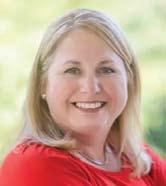
Jane keane Assistant Executive Director,
Stepping Stones Day School
Jane Keane, Assistant Executive Director of SSDS, has been in the field of Preschool Special Education since 1986. Jane has a BS from Saint Joseph’s College and a MS from Bank Street College. Jane began her leadership career at SSDS in 1998 after being a Preschool Special Educator for 12 years. Jane is the parent of four, two who were identified with Special Needs during their preschool years. She believes in the power that parents hold to ensure that schools provide all children with the opportunity to shine in their own way.
katy Hill
Executive Director, Rivendell School

Since 1999, Katy Hill has held a variety of positions at Rivendell School including classroom teacher, SEIT and Preschool Director, leaving her well prepared when she became Executive Director in 2014. Educated at Brooklyn College, Teachers College and Columbia University, Katy is committed to Rivendell’s mission in support of the very best inclusive education for her preschool students. Parents agree, she provides expert developmental guidance and oversees a warm, welcoming environment for children and families!
chris ongaro
Head of School, Robert Louis Stevenson School
Chris is a learning optimist with a history of blurring the boundaries between General, Special, and Gifted Education. He has presented nationally on blended learning, innovative program design, and complex learning profiles. He earned a doctoral degree at Columbia University’s Teachers College, a BS in English and Elementary Education from The College of New Jersey, and an MA in Gifted Education from Teachers College, where he also teaches in the Department of Curriculum and Teaching.

Sandy
Hagerty Head of School, Winston Preparatory School New York
Sandy has been a part of the Winston Preparatory School community for over thirty years. He started his journey there as an assistant teacher, then became a classroom teacher focusing on literature and writing, then a Dean, Assistant Head of School, and Head of School four years ago. Sandy is committed to making sure Winston’s unique model of education for the individual consistently provides intense skills remediation, embedded in classes with robust content while encouraging students to build independence, resilience, responsibility, self-awareness, and self-advocacy.

ilana ruskay-kidd
Founder and Head of School, The Shefa School
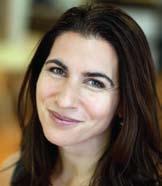
Ilana Ruskay-Kidd, Founder and Head of School at The Shefa School since 2014, brings over a decade of commitment to NYC’s Jewish education landscape. Previously, she directed The Saul and Carole Zabar Nursery School at the JCC in Manhattan, with her teaching journey starting at the Central Park East School. Ilana received her B.A. from Harvard College and a Master’s Degree in Education from Bank Street College.

April 2024 | The Special Child 21
Partner with Us Want to reach engaged parents across New York City? Collaborate with the New York Family Media team to spread the word about your launches, promotions and news. Reach us by emailing info@newyorkfamily.com or calling 718.260.4554

































































 kenyah miller Founder/CEO and Executive Director, intellectus Preparatory Charter School
kenyah miller Founder/CEO and Executive Director, intellectus Preparatory Charter School






